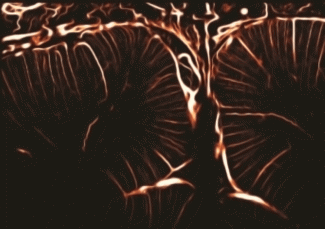Neurophysiology teams are dedicated to the study of neuronal mechanisms and interactions responsible for sensory processing, cognition and motor control. Their main objective is to characterize the activity of synapses, areas of information exchange between several neurons, and whole-brain microcircuits and networks.
The goal of this research is also to understand how and why neuronal activity related to behaviours or movements malfunctions in pathological conditions such as seizures or walking blockages in Parkinson’s disease.
Neurophysiology of the brain and spinal cord
The transmission of nerve signals in the various neurons networks is responsible for the activity of the nervous system. It is based on the excitability, conduction and transmission properties of the bioelectrical signal generated by each neuron and the plasticity of the network itself. The neurophysiology of the brain and spinal cord from the single cell to the entire network provides insight into the principles by which neuronal activity gives rise to specific functions that induce normal or abnormal behaviour. The study of neural circuits is an essential basis for therapeutic research for various diseases: epilepsy, trauma, neurodegenerative diseases, etc.
Objective of the domain
The goal is to better understand the physiology of neurons and networks to better treat these diseases, and to understand the role of neuronal activity in the development and repair of lesions in neurodegenerative diseases. Surface electrophysiology (transcranial magnetic stimulation) and intracerebral electrophysiology (deep brain stimulation) approaches in humans represent a major strength of Paris Brain Institute. They make it possible to treat certain pathologies such as Parkinson's disease, OCD, essential tremor, to promote recovery after a stroke, but also to follow the severe forms of certain diseases, such as epilepsies.







